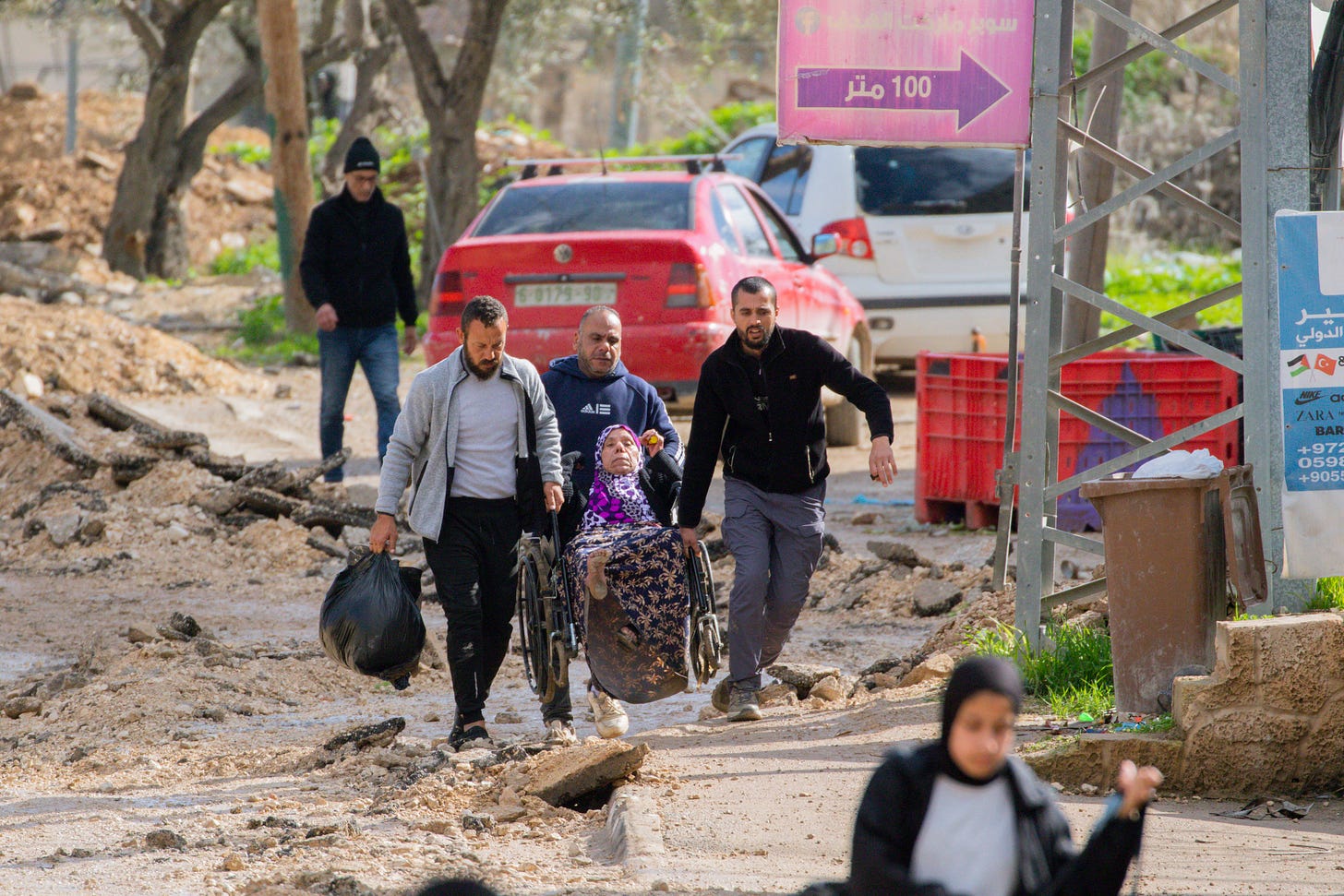'Nakba All Over Again': West Bank Palestinians Still Displaced More Than 6 Months After Israel Forced Them to Flee
The Israeli military's operation in Jenin, Tulkarm, and other cities, have displaced more than 40,000 people – the largest mass displacement of Palestinians in the West Bank in decades.

Occupied West Bank – “Get down. If the Israelis see you trying to enter the camp, they will shoot at you,” a Jenin resident told me as Palestinian journalist Ahmad al-Bazz and I walked toward the entrance of Jenin Camp, which until February housed 25,000 Palestinian refugees who were expelled from their homes during the 1948 Nakba. The ‘they’ she was referring to were the Israeli snipers positioned inside the camp to keep Palestinians from entering.
In January, the Israeli military began a new and devastating military campaign in the West Bank, which it labeled “Operation Iron Wall.” At first, working with the Palestinian Authority and, then, on its own, the Israeli military invaded village after village in the occupied West Bank, killed dozens, instituted lockdowns, and launched an airstrike on Jenin Camp.
Israel’s stated goal of the operation is to root out elements of armed Palestinian resistance from the West Bank, but what has resulted is the largest mass displacement of Palestinians outside of Gaza since the Naksa during the 1967 Six-Day War – more than 40,000 have been forced from their homes in the West Bank this year. And like in Gaza, there appears to be no prospect that those displaced will ever be allowed to return to their homes.
It’s “the Nakba all over again,” one Jenin resident told me.
Most fled from Jenin and Tulkarm, where the refugee camps, once strongholds for Palestinian resistance, have come under Israeli military control for the first time since the second Intifada. Those who could left for their extended family's homes in villages throughout the West Bank, while those who didn’t have anywhere to flee to were forced to stay in makeshift shelters in Jenin and Tulkarm. In the latter, dozens of families slept on the floor of a wedding hall and youth sports center.
The orders to leave the camps in Jenin and Tulkarm came from the Israeli military and were enforced in a matter of hours. After Israel’s initial invasion of the two camps, Israeli forces went house to house and told residents to flee. Many whom I spoke with recounted how they were held at gunpoint and told that if they chose to stay, they would be killed. “It all happened so fast,” Fakhria Ghbairiga, a 58-year-old displaced resident from Jenin, told me. “People didn’t know where to go; the army would take them out around midnight,” she added.
Residents who fled did so with only the clothes they were wearing and whatever they could carry. They hoped they would be able to return as soon as the fighting between armed Palestinian factions and the Israeli military was over. But more than six months later, the camps remain closed. “[N]ow no one knows what will happen,” said Kamal Damaj, 49, a coordinator with the Popular Services Committees.
Only Israeli forces are allowed in and out of Jenin Camp, and day by day, they demolish residents’ homes and host military exercises.


